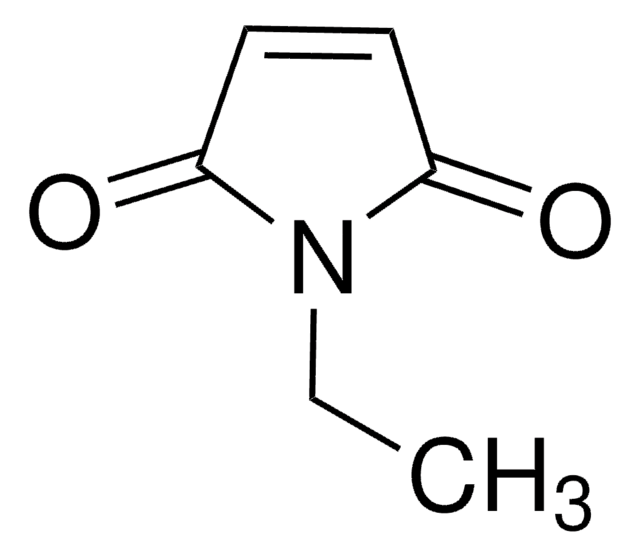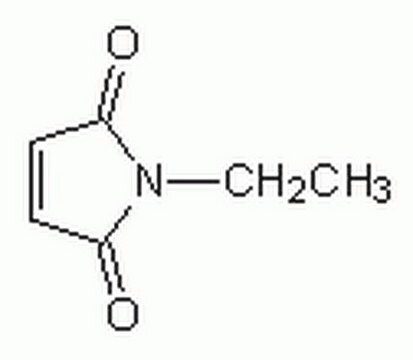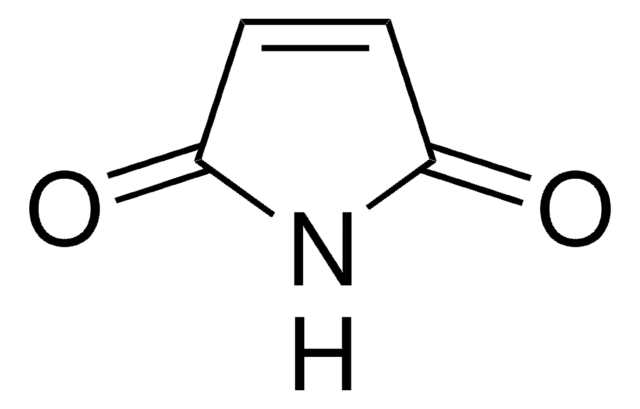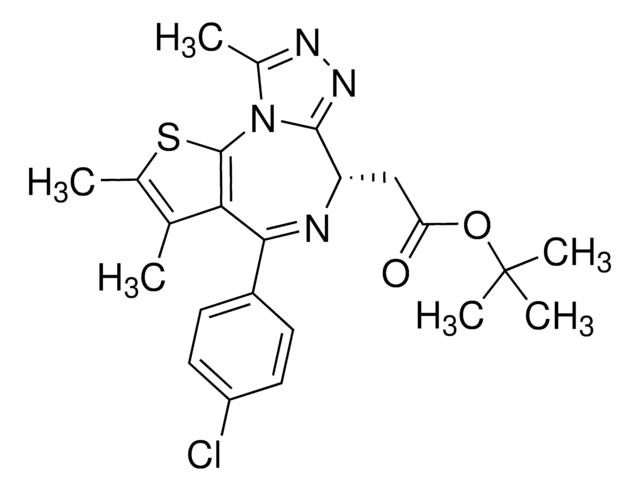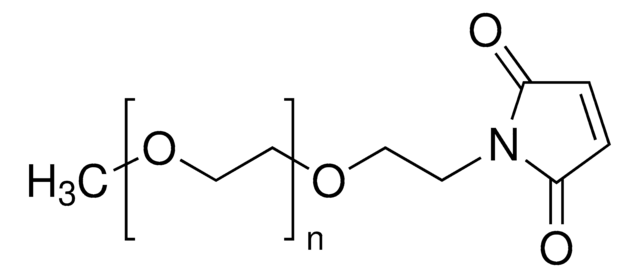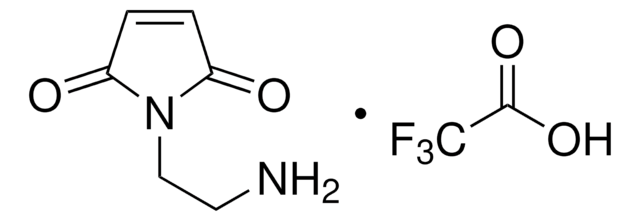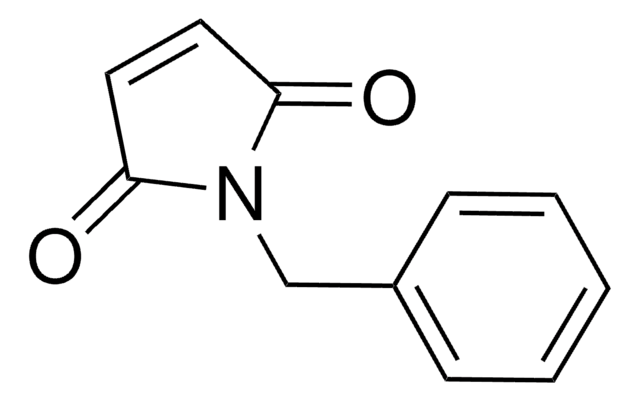692905
N-Ethyl-d5-maleimide
99 atom % D, 98% (CP)
Synonym(s):
NEM (ethyl-d5)
About This Item
Recommended Products
isotopic purity
99 atom % D
Quality Level
Assay
98% (CP)
form
powder
mp
43-46 °C (lit.)
mass shift
M+5
storage temp.
2-8°C
SMILES string
[2H]C([2H])([2H])C([2H])([2H])N1C(=O)C=CC1=O
InChI
1S/C6H7NO2/c1-2-7-5(8)3-4-6(7)9/h3-4H,2H2,1H3/i1D3,2D2
InChI key
HDFGOPSGAURCEO-ZBJDZAJPSA-N
General description
Application
- To synthesize isotopic silica nanotag by reacting with silica precursor 3-mercaptopropyltrimethoxysilane (MPTMS) for multiplexed ion beam imaging.
- As an isotopic internal standard to determine the ratio of glutathione (GSH) and glutathione disulfide (GSSG) in cultured cells using HPLC-UV and LC-QTOF-MS.
Packaging
Signal Word
Danger
Hazard Statements
Precautionary Statements
Hazard Classifications
Acute Tox. 2 Oral - Acute Tox. 3 Dermal - Eye Dam. 1 - Skin Corr. 1B - Skin Sens. 1
Storage Class Code
6.1A - Combustible acute toxic Cat. 1 and 2 / very toxic hazardous materials
WGK
WGK 3
Flash Point(F)
163.4 °F - closed cup
Flash Point(C)
73 °C - closed cup
Regulatory Listings
Regulatory Listings are mainly provided for chemical products. Only limited information can be provided here for non-chemical products. No entry means none of the components are listed. It is the user’s obligation to ensure the safe and legal use of the product.
JAN Code
692905-10MG:
692905-VAR:
692905-BULK:
Choose from one of the most recent versions:
Already Own This Product?
Find documentation for the products that you have recently purchased in the Document Library.
Customers Also Viewed
Our team of scientists has experience in all areas of research including Life Science, Material Science, Chemical Synthesis, Chromatography, Analytical and many others.
Contact Technical Service